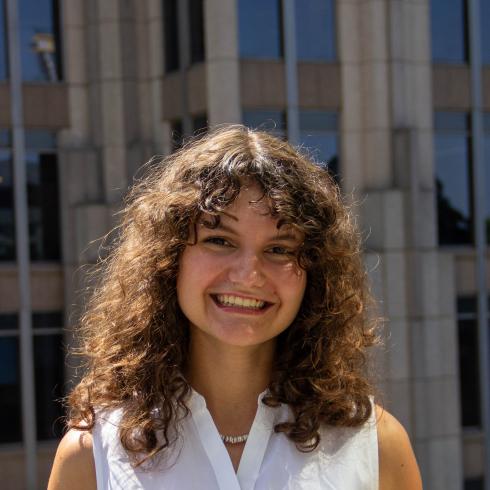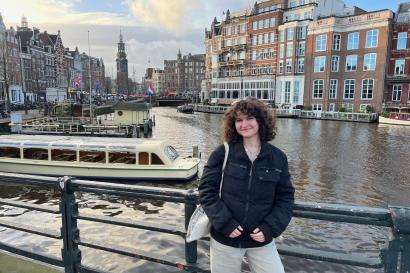In the Netherlands, save up your plastic bottles and aluminum cans---they can be returned to most grocery stores for a small profit. Statiegeld, which translates to “deposit” in English, is an initiative to keep plastic bottles and cans out of the trash, allowing consumers to receive store credit for the bottles they’ve already paid for. We are right at the end of the semester, so I wanted to try this out for myself with the few bottles I had saved. This process was very simple—click on the photos below to see how it's done.
These Statiegeld stations made it incredibly easy to earn your money back on everyday plastic bottles and cans, and is an initiative that has seen much success since its implementation in 2023. I did not realize how recently this initiative had been introduced—between biking everywhere, wind power, paying for plastic grocery bags, and sorting my compost, recyclables and waste, The Netherlands feels well established (in my book) as a country that wants to cut back on waste production. Even norms such as these were refreshingly different from what I am used to back in Winston-Salem, North Carolina. Recycling back at home is neither user-friendly or practical, it is difficult to get around without having a car, and our energy still largely is produced with non-renewable resources.
I am left to wonder, after using Statiegeld, if initiatives such as these would work in America. Grocery stores are much more accessible in Amsterdam, there is often an Albert Heijn or a Dirk on every single block—they are a quick walk or bike ride away. Additionally, I feel that Dutch culture has embedded sustainable values that fuel a society’s willingness to take advantage of such initiatives. The concept of “less is more” and using + reusing what you already have feels more salient in Dutch culture, where in American culture it sometimes feels we value the opposite. I feel like a Statiegeld initiative in America could work, especially in a larger + more connected city, but it would experience less success than its counterpart in the Netherlands.
America has much larger fish to fry in our path to sustainability, and I know it will not begin with a bottle deposit program. However, perhaps small initiatives such as Statiegeld can foster more critical values regarding sustainability, which feel rather important if we are to collectively care about + impact our country’s environmental impact.






Brooke Lackey
Brooke is from Winston Salem, NC, United States, and is a student at the University of Amsterdam this fall. She enjoys being outside, thrifting, and reading good books in good coffee shops. She is also a CODA, fluent in American Sign Language.














